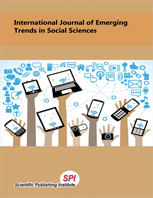Pregnant Women with Extended Family on Knowledge, Motivation, and Readiness In Exclusive Breastfeeding
DOI:
https://doi.org/10.20448/2001.12.104.107Keywords:
Exclusive breastfeeding, Residency status, Knowledge, Motivation, Readiness.Abstract
Family support has a relationship with the successful exclusive breastfeeding, because of the presence of the family is very important to encourage mothers to boost confidence and stabilize emotions. Demographic factors such as residence status of pregnant women whether live with in-laws family (extended family) or nuclear family (nuclear family) will affect the readiness of mothers in exclusive breastfeeding. This study aims to determine whether there is influence of the residence status toward knowledge, motivation, and readiness of mothers in exclusive breastfeeding. Cross-sectional study performed on pregnant women in Surakarta. A sample of 150 respondents was taken under observation in 2015. Various demographic characteristics, knowledge, motivation, and readiness of mothers in exclusive breastfeeding, measured with a structured questionnaire. Statistical analysis techniques used independent samples t-test and multiple linear regressions. The results showed that the residence status did not affect mothers’ knowledge on exclusive breastfeeding. Pregnant women who chose to live only with husband (nuclear family) had the significant motivation and readiness of exclusive breastfeeding significantly. Based on a multivariate model proved that the motivation and better preparedness in fact due to the higher education level. Nevertheless the results of this study indicate a significant effect on mothers’ residence status on motivation exclusive breastfeeding.


